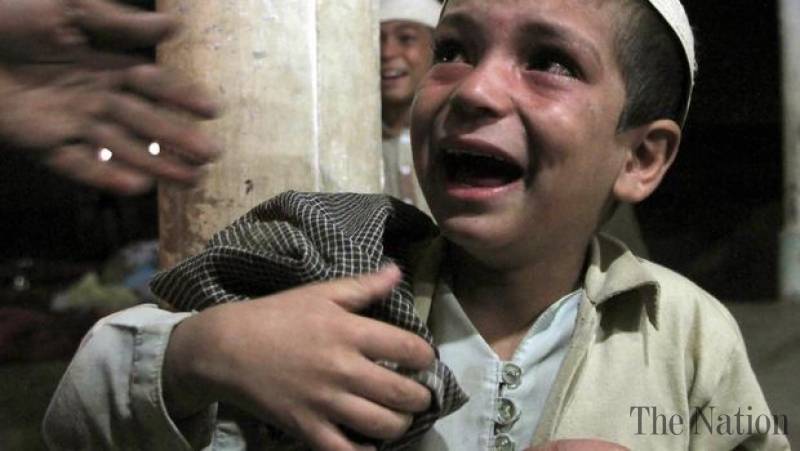“There can be no keener revelation of a society’s soul than the way in which it treats its children.”— Nelson Mandela, Former President of South Africa
In 2015, our national conscience suffered a major setback as media houses revealed the black and hollow depth of the abyss that we, as a society, have thrown our children in. Against a backdrop of years of rampant child abuse and oppression in all regions and socio-economic tiers across Pakistan, the Kasur incident was but the point of culmination - inarguably, the most appalling case of child sexual abuse that truly exposed the vices of this country. Last year, 280 children (boys and girls) from Hussain Khan Wala village (Kasur District, Punjab) were to have been sexually abused and physically and emotionally tortured by an organized group of barbaric criminals including police officials and local chieftains. The most haunting part of this tragedy, however, was not the inhumane act and injustice that had taken place but the response, or lack thereof, from the people and State of Pakistan. Although many people expressed their horror on social media and similar mediums, the proportion of the population actually incited to act against this abuse is incredibly, shamefully insignificant.
Recently, eight months after the news of the tragedy broke, the media circulated reports of the Senate finally passing a bill against child abuse. Although a step in the right direction, Pakistan still has a long way to go in securing child rights and protecting them from the horrors of sexual abuse and exploitation.
Talking about child sexual abuse is thwarted by the culture of silence that has rendered it a taboo topic in Pakistani society. Despite the severe individual implications of the phenomena, the success of awareness campaign is diminished owing to the stigma attached to it. Sexual abuse is something off-bounds, something that fails to be brought up in either public or private spaces because it is “shameful”, “indecent” et cetera. Sometimes religious justifications are also thrown in the picture with obligations of “haya” (modesty) having the effect of removing the topic from any healthy discourse. This makes victims of abuse more reluctant to speak up and seek justice. Even if the victims do raise their voice, they are often suppressed by their own families for fear that it would ruin their “honour”. The fear of being ostracized from social circles, or making someone else uncomfortable, or even getting reprimanded by one’s parents/guardians also become decisive factors in the overall equation that leads an otherwise concerned member of the society into locking their tongue and moving. So not only do the victims need to come to terms with the event itself and its physical, emotional, interpersonal and psychological ramifications, but also find themselves dealing with an external environment that tends to trivialize or ignore their emotions and concerns. Such social values have immense adverse consequences for Pakistan and particularly for its most important population – the children.
Having painted the picture as it is, it would be untrue to say the entirety of the Pakistani nation sits in complacent silence. Organizations like the Child Empower Association of Pakistan (CEAP) are struggling against violations of children rights while simultaneously attempting to educate the Pakistani society. Other organizations, including Sahil and Rehel, continue working towards the same cause. Many other individuals successfully identify the nature and magnitude of the problem and are, if nothing else, addressing it through open, public discourse.
Ms. Tehmina Shahid, the founder of The Child Empowerment Association of Pakistan (CEAP) said, “Our child empowerment programs are very child friendly and kids enjoy it thoroughly; and that is the entire point, to get the message across without making the audience feel intimidated. Having said that, an NGO along cannot do much without having the adults onboard. This is where our struggle as a society comes in; each adult must open up to the idea of having open conversations about personal safety and rights with their child.”
What happened in Kasur, and what happens in many households that goes unnoticed and unreported, should seize us by the soul and move us until something is done about it. Mere condemnation through social media does little to mitigate the suffering incurred as a result of this rampant crime. What we often forget is that the destruction of our youth in such a vicious manner translates into a destruction of this nation’s future. It is time this country unhinges itself from the shackles of standards that have destroyed its children. In the eternal words of the writer Mitch Albom, “Youth, like pristine glass, absorbs the prints of its handlers.” Make sure the marks we leave on our youth make the world a better and not a bitter place.






